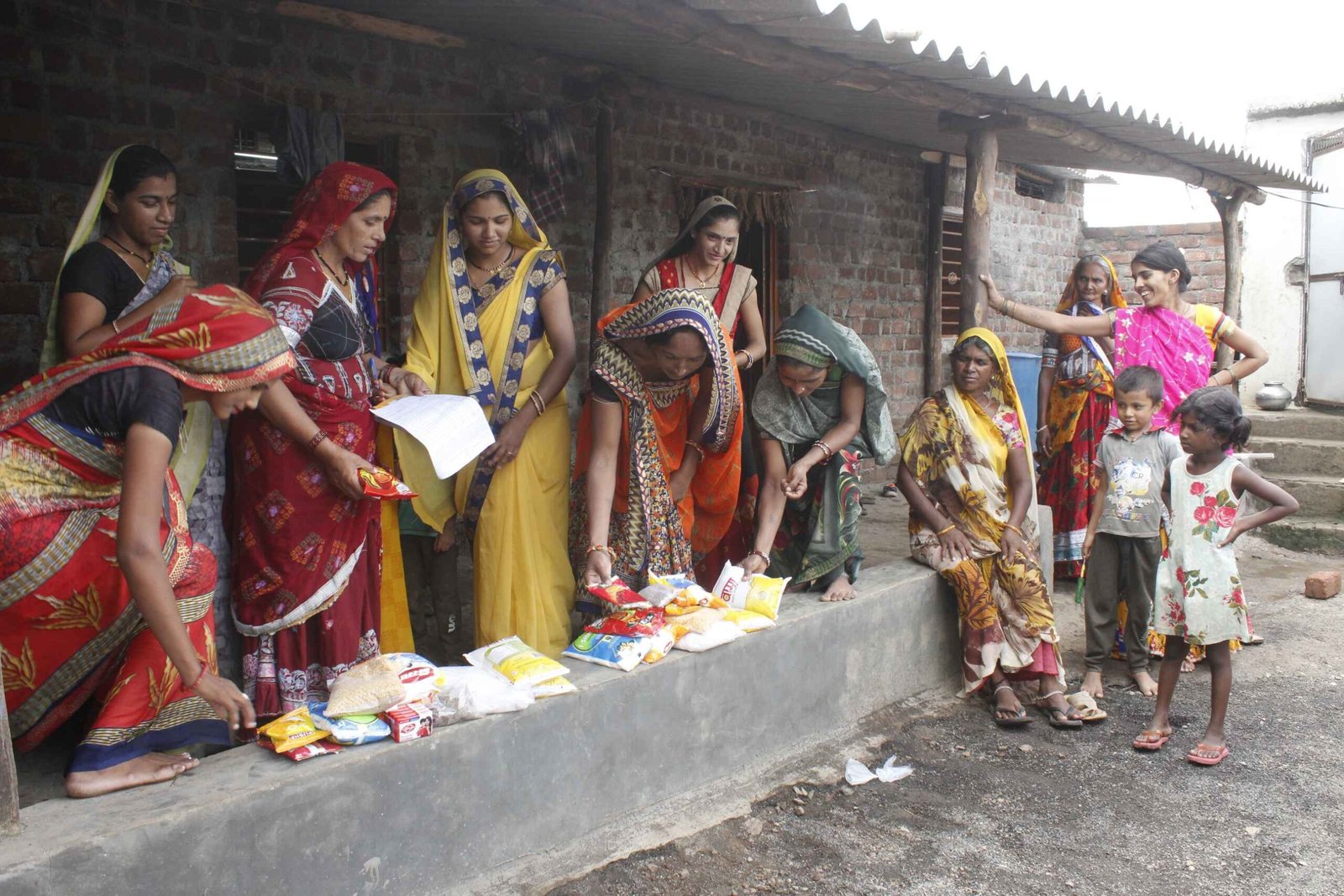Women Petition for Rice in Public Distribution System During COVID-19 Lockdown
In the Adivasi-dominated village of Ratatalai, in the Bagli block of Dewas district in Madhya Pradesh, forty women took on the arduous task of activating the Public Distribution System (PDS). The task of providing food security in areas characterised by backwardness and chronic poverty poses many hurdles. More often than not, the public systems in place fail people in different ways creating an endless cycle of poverty, hunger, and food insecurity.
Sita Bai from Ma Durga Pragati Samuh has been an SHG member for the past eighteen years. She is an active member of the Shri Sainath Pragati Sankul- a cluster of SHGs that actively takes up social causes in the village and strives towards development. In our conversation with Sita Bai, she mentioned how no rice was distributed from their PDS shops since March 2020, after the announcement of the national lockdown. A few women had collected information from the nearby villages only to realise that rice was very much available and being distributed in other villages. Champa Bai, a member of Manglashri Pragati Samuh from the same village found out that the nearby villages of Kishangarh and Pankua had also faced the same problem however for a much lesser period until the rice was distributed to all. However, almost three months had passed and no distribution was made in Ratatalai.
To find a resolution to this, about forty women from the village visited the Panchayat office only to find its doors locked. They met with the Sarpanch at his house who refused to cooperate in the beginning. He denied responsibility for the situation and casually remarked that this did not fall within his jurisdiction of work. The women refused to leave without an answer. They waited for three hours after which the Sarpanch along with the Panchayat Mantri agreed to address the cause. The women of this cluster sought assistance from the Punjapura Pragati Samiti, a registered SHG federation in the area to draft a
petition which was later forwarded to the Food Inspector in Bagli. Although the Sarpanch wanted to solve this issue without anyone getting to know, he was forced to forward the women’s petition upon insistence and mounting pressure by the women. A telephonic inspection soon took place by the Food Inspector from Bagli and rice was made available for distribution in Ratatalai in a week.
Ratatalai has a history of women’s collective efforts towards village development and securing rights for the people. Women of the village had taken up the responsibility of running a drinking water scheme in the village through their collective effort. The public distribution system is supposed to play a pivotal role in ensuring food security for the poor through Panchayati Raj Institutions in place. This story is, however, an example of how women-led community institutions of the poor can step in when our public structures fail the poor and vulnerable in different ways and make them accountable to the people.




